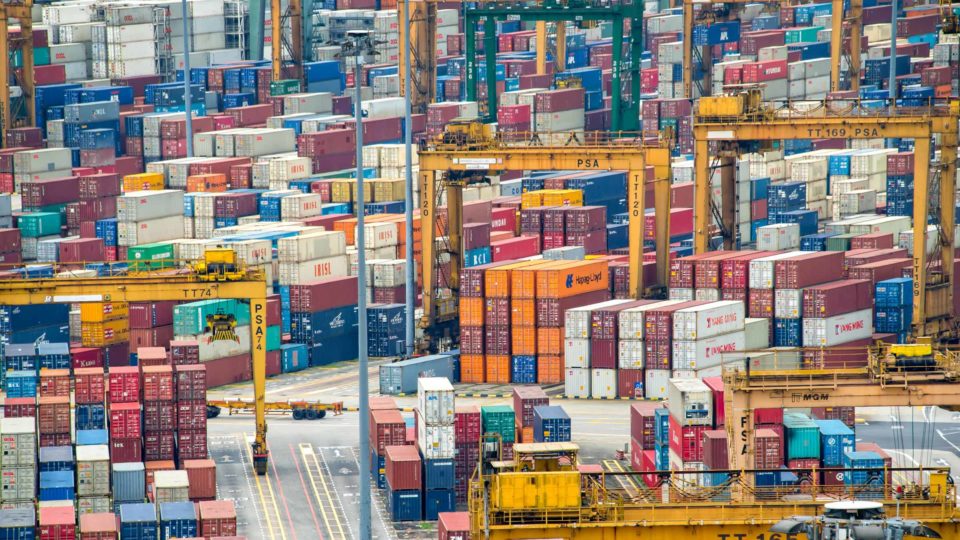This Blog is on Backorder

It has become the unfavorable response for manufacturers, distributors, retailers, grocery stores, you name it. “That item is backordered.” As a nation we have seen so many different shades of the Covid virus and its’ effects. What started as a health crisis rolled into an economic shut down which brought on a financial crisis? We had the hospital capacity crisis turned PPE crisis. The challenges are continuing today as the delta variant makes its rounds. Operation Warp Speed brought about an antidote in less than a year and we thought we were on the road to recovery and, we are. But no one could have anticipated the totality of what was to come.
When the economy shut down, factories worldwide canceled orders. According to the World Economic Forum, the United States was down $50 billion in exports in February alone last year. Chinese exports were down $50 billion in May. Just the truck export market was down more than a $1 billion in April and May. US aircraft part exports dropped $6 billion in May. Overall, the global economy shrunk by 3.5% and international trade declined by 9.2% as “governments around the world imposed several measures that restricted the mobility of people and goods, which impeded trade flows at local, regional and international levels.” (Brookings Institute) That’s massive in ways we are just now starting to better understand.


Restarting a global economy after an extended shutdown is like trying to pull 100 rail cars with a mule. A big reason for that is manufacturing and an Interglobal economy. Fifty years ago, the Japanese introduced the theories of Just In Time supply chains and Lean Manufacturing. Manufacturers, working with all their suppliers, who worked with all their suppliers, etc. developed systems such that no one had to store much inventory. Everyone knew just how much of a gadget to make to supply it up the line quickly. Supply chains became an art form. Lean manufacturing added emphasis to that by trimming excess from the production cycle. This meant that more products could be made cheaper and faster. During this same time, the US also expanded its relationships with China; China became a major producer and exporter of goods to the US. This meant we paid less for products here.

Unfortunately, no one planned for a worldwide crisis that would put these systems to the ultimate strain. Covid and the accompanying shutdowns provided the test. Everything from automobiles to car parts to kitchen appliances to fashion to PPE (personal protective equipment) has been affected.
PPE makes for an interesting case study. According to the FDA, there are still severe shortages of PPE in hospital and health care systems, and demand is expected to increase. All types of gloves – latex, vinyl exam gloves, polymer, and specialty gloves are to in high demand. According to Spectrum News 87% of providers say they are reusing N95 masks and another 76% said they were reusing gloves. Many hospitals reported they were less than a week away from having none left. And demand has driven some prices up by 1,000%. According to Becker’s Hospital Review, exam glove constraints are expected to continue into 2023. At the same time, Supply Chain Dive lists over 30 companies that converted some or most of their manufacturing efforts to produce PPE: primarily masks, surgical gowns, and ventilators. And they are producing in huge numbers.


How can the FDA report such drastic PPE shortages, yet companies both large and small are producing record numbers of PPE? One theory is that there is no middleman to coordinate between manufacturing and end-user. The supply chain is in tatters, and it could take years to repair.
Small businesses, like Affordable Medical Equipment, can go straight to the source. There is no middleman – no one that must approve our purchases or put their stamp of approval on who we purchase from. We can do the research, find the manufacturers of what we need, and get it. Whether it is sterile wipes, KN95 masks, non-surgical masks, latex gloves, or mobility equipment we have been able to maintain supply. Our supply chain on products has remained intact. Now that is not to say that we are not experiencing delays. Many manufacturers rely heavily on imported products.


One of our larger suppliers alluded to several other areas they are challenged – shortage of shipping channels (the US needs 70,000 more truck drivers today than what we have), shortage of workers, shipping prices from China have gone up over 500% (CNBC), major Chinese port closures right now due to covid, and US docks that can’t unload fast enough due to many workers being out sick.
Then there is the chip shortage. Everything today from autos (today’s vehicles have 1,400+ chips in them) to household appliances to HVAC systems to cell phones have chips in them. Chips are manufactured items and as such the industry continues to struggle to catch up to demand.


Affordable Medical Equipment remains committed to providing you the products that you need. We have mobility scooters, power chairs, wheelchairs, KN95, our famous Escape rollators and non-surgical masks in stock. We have recliner/lift chairs and patient lifts in stock. Visit us at www.affordablemedicalusa.com or come see us at 1821 Sunset Blvd. in West Columbia, S.C.



